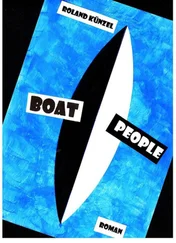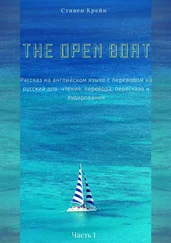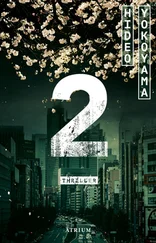Him (looking up at me in disbelief): Huh?
Me: You didn’t want an espresso?
Him: For real?
Me: Huh?
Him: You—you’re… (He says my name. Well, a nickname I had back in high school.)
Now the disbelief is mine. I give him a good look—when it hits me like a piano.
Me: Seriously? Nohara?
Him: In the flesh.
Nohara and I were in the same grade. Remember what I said before? About high school. About being a quiet kid. About Japanese for idiots . We had our own words. Words that will live forever—when the chronicle of my life is finally put into writing.
Him: What are you doing here?
Me: I run this place. What are you doing here?
Him: You run this place? Wow. You? In business?
It bothers me how he seems sort of impressed.
Him: Great work. I guess I’m here for work, too. To cover the place.
Me: What do you mean?
I didn’t keep tabs on old classmates (I was too busy working), so I had no idea what Nohara did for a living. “‘The river flows on, but the water is never the same.’ We read that in high school. Remember?” he asks. (Yeah, I remember. Opening lines from The Ten-Foot Hut . Obviously.) Then he pulls a stack of glossy magazines out of his bag.
Him: I write stuff like this.
His magazines are full of coloured Post-its, marking the pages with his own articles. He’s a writer now. Does some freelance editing, too. I take a look at his prose… Surprisingly readable. Nowhere near as devious as it used to be. “The pen is not the man,” I guess. Speaking of which…
Me: What the hell is this name? Kaku Nohara?
Him: Me.
Me: I know Nohara. Where did Kaku come from?
Him: It’s my pen name. Cool, right? Now my full name means “Heartfield…” Teeheehee .
What the hell is he grinning about?
Nothing’s changed. Almost like there had been no decade-long blank. If we had a deck of cards, we could have played “Poorest of the Poor”—just the two of us. Like we did in high school. A couple of hours after our chance reunion, we meet up at a local oden place. This time, on purpose. By appointment. When we’re done eating, Nohara puts our private patois on hold for a moment—for the sake of business: “If you’re OK with it, I’d love to write a longer piece about your place. It’ll make a great story.”
His face tells me that he means it.
The piece he has in mind, the one he wants me to OK, is tentatively titled: “168 Hours in a Café: Twenty-Four Hours x Seven Days”. As Nohara puts it: a photo-essay on everything that goes on inside a popular café. Yeah, right. Kate’s no fucking café (not to me), and words like “popular” trip my gag reflex… (But, damn… It’s the perfect cover. To help keep my Trojan Horse off the radar. What the hell should I say?) OK, someone just shut me up. I’m way overthinking this.
“Go for it,” I say.
I mean, it’s Nohara. I’ve always trusted him. Still do.
Nohara spent about two weeks working on the piece. I spoke, he wrote. I told him pretty much everything. The truth about Kate. About what Kate meant to me. I was totally honest—on the condition that he left those details out of the final product. Now that I think about it, I guess that was the first time I really told anyone about Kate’s humble origins.
The story of Kate—transmitted in full. Recorded for posterity. Almost like some sort of sign that all would soon be lost.
Like it had been fated.
Why, God?
Why is the universe teeming with random forces of evil?
It was December—probably late December. I can’t remember the date, and I’m sure I don’t have to remind you why I forget what I forget. It was a little after ten in the morning, and I was walking down Nakasugi Avenue. Heading for my fortress… Our fortress. But, from a couple of hundred metres away, I could see that something wasn’t right. Kate didn’t look the same. Is the roof…? From where I stood, the lines looked sort of wrong . Kind of like a badly drawn imitation of the real thing.
Then that old whip cracks. Red alert. Alarm bells ringing. BEEP BEEP BEEP BEEP .
Not a good sign.
I start running.
Then—the epilogue.
I hurry to unlock the door and witness the carnage inside. The city stormed my fortress . The ceiling’s punctured in three or four places—holes around fifty centimetres in diameter. My Trojan Horse has been compromised . The sun shoots down through the holes, pointing fingers of light at the intruders. That’s right. They’re still there.
This is the epilogue . Counter in pieces, ferns in smithereens, oven useless on its side. Among all the debris, the chunks of ice that did it.
They were probably three or four massive ice bricks when they hit the roof—before breaking up on impact.
Our territory was ruined.
I stumble over to the biggest block of ice. Glistening in the morning sun. I make a fist and I punch that stupid block. Over and over and over.
And over… and over…
Until my knuckles bleed.
Give me back my horse… You motherfucker…
* * *
Following a two-month investigation, the Suginami police conclude that a large amount of ice broke loose from the undercarriage of an American fighter jet and fell out of the sky. They might even have an eyewitness. Someone who saw the crash.
So fucking what?
My insurance won’t cover this. Looks like the end.
BOAT SEVEN
THIS ISN’T THE FIRST AND YOU KNOW IT’S NOT THE LAST
Mid-April, 2001. About a year and a half ago. I took my third girlfriend (aka “Knife Girl”) to the airport. I saw her off—like some kind of guardian. I was twenty-five or twenty-six. Pretty sure we looked nothing like lovers.
Is that because we loved each other too much?
That March, she graduated from the school in Kita ward where she’d spent the last six years. Next stop: the US, the East Coast, where she could fulfil her destiny. Kate—our Asagaya fortress—had been her destiny, but that place was no more. She needed a new place now. She was a knife girl and she needed to fight. I believed that. So I did some digging. Making connections was surprisingly easy. Nohara put me in touch with an editor working on a project called “A Tale of Three Cities: Japanese Taste Around the World”. After that, it only took three letters, two international calls and one video (showcasing Knife Girl’s literal chops). And the cherry on top: we had the US Ambassador try her cooking and put in a good word, in an unofficial capacity.
I hope you brought your sunglasses. This girl’s future was as bright as a 10,000-watt light.
Go West, Knife Girl. You’ve burnt some bridges—but your blades will get you where you need to go.
She walks through the gate, then looks back. She’s sobbing. “Thanks for everything, boss,” she shouts. You’ve got it all wrong. I’m nobody’s boss now.
Golden Week is coming at the end of the month—but the airport is unnaturally quiet.
I watch her leave.
I watched her leave.
Then I was overcome by an unbearable emptiness.
This is the record of my defeat.
My failed Tokyo Exodus. It’s cold here—too cold .
Christmas Eve, 2002. Where am I? Ariake Station, on the Yurikamome Line. I walk through the gate and take the long escalator down. Mere metres in front of me: International Exhibition Station on the Rinkai Line. Time to switch trains. But which way? Tennozu Isle or Shin-Kiba? I go—where I’m taken. I don’t choose my platform. My platform chooses me. Time moves me.
I trace Tokyo’s outline underground.
A voice announces the next station: Shinonome—“dawn”.
Читать дальше












